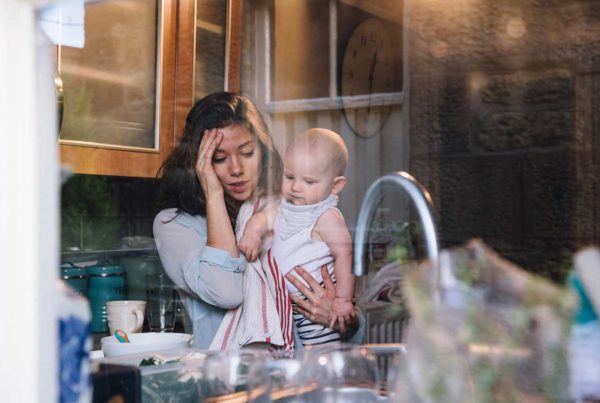
It’s a big week ahead for many families in New South Wales. There have been multiple school emails and newsletters received, instructions and discussions occurring in households about the return to school plan which will be happening this week. There is a definite buzz of excitement, confusion, hope and for many children worry about returning to the school classroom. For many kids, this “return to normal” comes with a unique set of concerns.
While some kids are excited to be back with their peers and teachers, others may feel overwhelmed by a new social environment. In addition, the social dynamics of school can be especially hard for children who have experienced social anxiety or bullying before the pandemic. During learning from home, it has been easier for kids to just focus on their own group of friends. This has allowed them to avoid certain social situations that make them uncomfortable, so for some children who have been dealing with bullying, this has been a welcome break.
So what are some general tips for parents to help prepare their family for back to school this week?
Don’t pretend there aren’t worries.
Don’t assume your children don’t have worries. Glossing over the issues will only exacerbate any concerns they may have. I have had kids talking about their concerns regarding changes in recess and lunch times due to the separation requirements. When will I eat? What if I’m not hungry? What if I’m starving and then hangry? What if I’m separated from my friends? Whatever your child may be feeling when it comes to going back to school, acknowledge this will feel like a significant transition, and it may take time to settle back in. Normalise the worries, we all have them. Perhaps try sharing how you may be have been apprehensive about going back into the office or place of work. Be a safe space for your kids to talk about how they’re feeling, and validate whatever those feelings may be. Helping them think of something they can do to problem solve their worries can be very helpful.
Encourage flexibility
The school your children are returning to probably won’t look or feel like the one they left. Prepare them for the differences and how this may feel. This includes staggered start times, masks, class changes, physical classroom changes for distancing, timetable changes and maybe even different uniform requirements for a while. If you’re feeling overwhelmed by the stream of emails from your child’s school, imagine what’s going on for them! One of the biggest things that will contribute to a child’s anxiety on the return to school is all the uncertainty. The more information the kids have at the appropriate developmental level, the better. Empower your children with the tools they need to stay safe in school, including discussions around hygiene, masks, distancing staggered break times.When they arrive at school, they will recognise the tools being implemented and understand the need for them.
Help them work their social muscles.
Help your kids get moving, a lot of them have not been “in motion” for a long time. This is true not just physically, but also from a social aspect. Lockdown has taken a toll on kids who have missed out on social interactions, so it’s important we try to get our kids together face to face, in a safe way. Catch ups in person will help, walks, bike rides, visits to the park. Discussions and practice of certain social situations in the safety of the home environment can also be very helpful. For example talking through or acting out potential scenarios to help your kids problem solve and plan ahead.
Provide routine
Structure and routine can help our kids feel secure and safe, while also keeping our expectations in check. This can include talking about practicing the morning routine, what time you wake up, what’s in your lunch box, packing your school bag, to who is dropping off or picking up from school. Taking the uncertainty out of school return is important. In many schools, parents are not yet permitted into the grounds, so school drop-off may be different. Some children may need to know specifics, for example, I will drop off at the school gate, I will give you a hug and kiss before I say goodbye and then we wave as you walk in.
When would a therapist help?
In some cases children may resist going back to school because lockdown was actually a lot easier for them than going to school – kids with social anxiety, or who were bullied, or kids with learning difficulties who had an an easier time at home learning at heir own pace. Contacting a therapist can be helpful to explore with them what aspects of school they don’t like or don’t want to do, even if they’re not sure at first. Therapy also involves helping anxious kids talk to themselves and reassure themselves they are okay in difficult moments. It can be very useful to have a toolkit of strategies that are are developmentally appropriate for your child to use. A combined approach is important, so therapists often work with teachers too, to talk through strategies that may help and work collaboratively to ensure the optimal outcome for the children.


